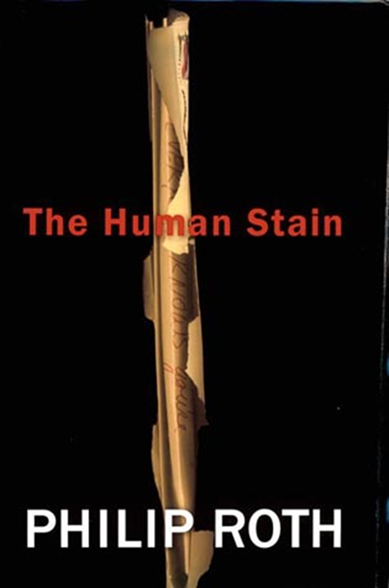 Character:
Character: Coleman Silk
Source Text: Roth, Philip. The Human Stain. Boston: Houghton Mifflin, 2000. Print.
Entry Author: Claire McDonald
Coleman Silk is a Jewish professor who teaches classics at Athena College. After spending his academic career as a professor and dean of the college, Silk is accused of making a racist remark about two of his students. Although this accusation is false, Silk is heavily criticized by his fellow professors, which leads him to resign in protest. Following his resignation, Silk begins a friendship with Nathan Zuckerman, an author who acts as the narrator of The Human Stain. At their first meeting, Silk commands that Zuckerman write the story of Silk’s perceived racism and actual innocence. He tells Zuckerman to write his story, but Zuckerman does not know the entirety of Silk’s story until Silk’s death in a car accident.After Silk’s death, Zuckerman learns from Silk’s sister that Silk is not Jewish, as he had known him to be. Instead, Silk is revealed to be a light-skinned black man passing for white. Silk first began to pass as white at a young age, when his boxing instructor, who was known to teach boxing to Jewish teenagers, told him not to mention his race at a match. Silk is told to allow other people to construct their own ideas of him, and this means that he is assumed to be Jewish because of his appearance and his affiliation with this particular instructor. This realization eventually led to Silk’s decision to pass for white and Jewish in all aspects of his life; he is hired by Athena College under the assumption that he is Jewish, and his wife and children all know him as a white Jewish man. It must be noted that Silk grew up before the Civil Rights Movement, and during his childhood and adolescence he was forced to see his highly intelligent father be belittled and mistreated at his menial jobs because of his blackness. This is not a fate that Silk wanted for himself, so he makes the choice to reject his blackness because he thinks that this will enable him to have the life that he wants to live.
Silk’s hidden identity is important to The Human Stain because it reveals an important aspect of the confines of freedom at this point in time. Silk can only obtain the freedom to live his life as he chooses if he is willing to give up his identity as a black man; this shows the institutionalized racism present in academia during the mid-20th century. His choice to pass as white also presents an interesting look at the definition of freedom. After being told that Silk lived his life as a white Jewish man, Zuckerman wonders if Silk’s choice to pass is the ultimate example of American individualism. By this, he means that Silk has completely prioritized his own success over the well-being of anyone else, including his mother, siblings, wife, and children. Roth essentially uses race to convey conflicting definitions of freedom and personal choice as they relate to the general sense of morality present in the U.S. at this moment in history.
 Character: Coleman Silk
Character: Coleman Silk
